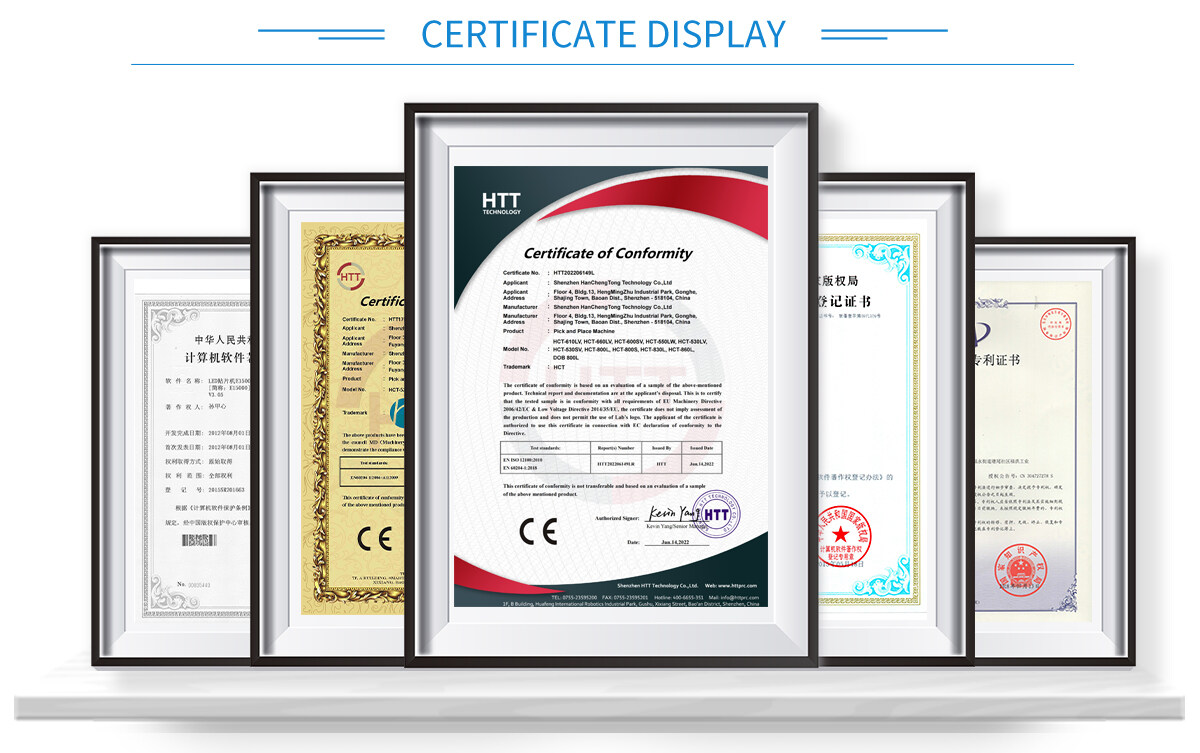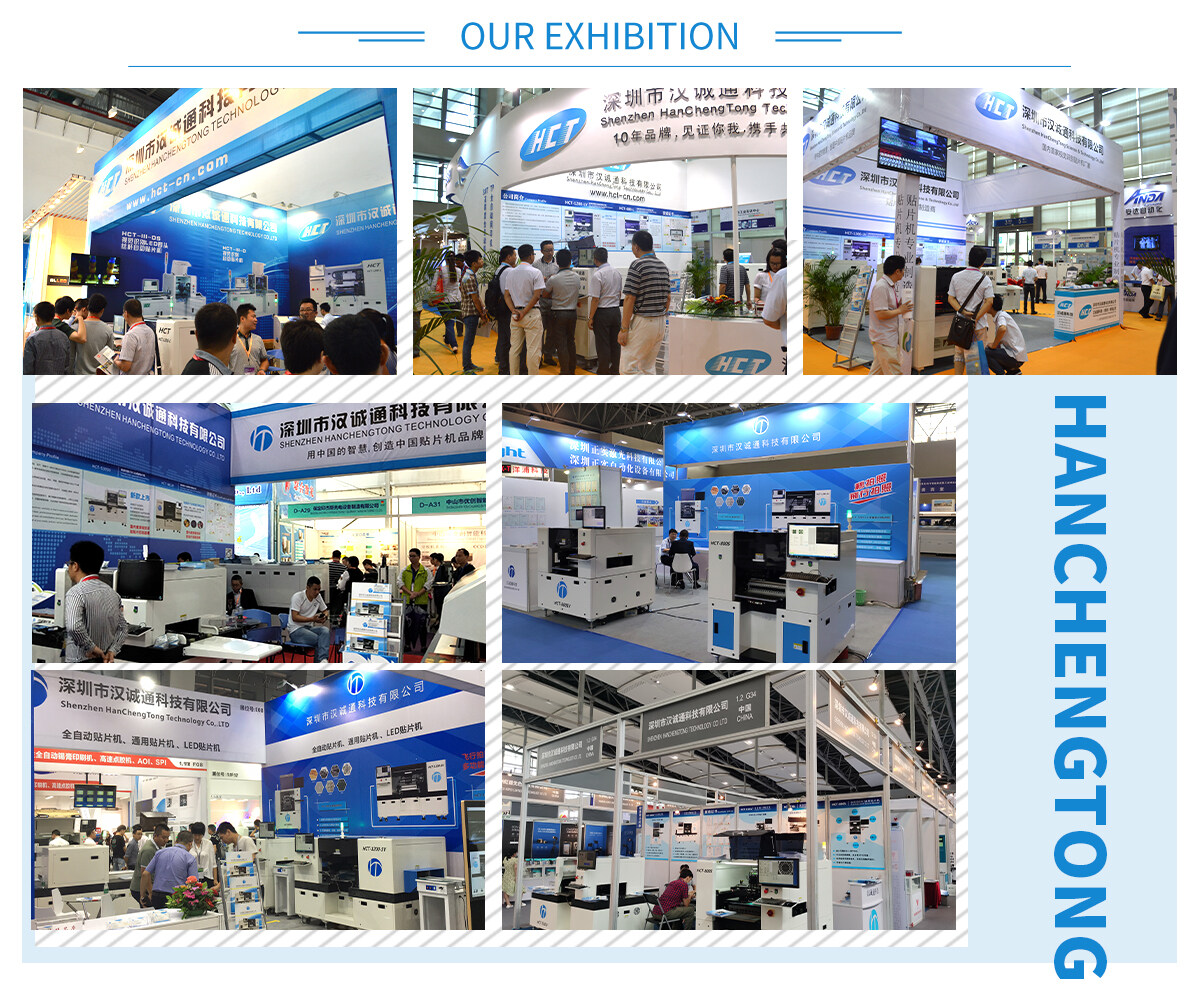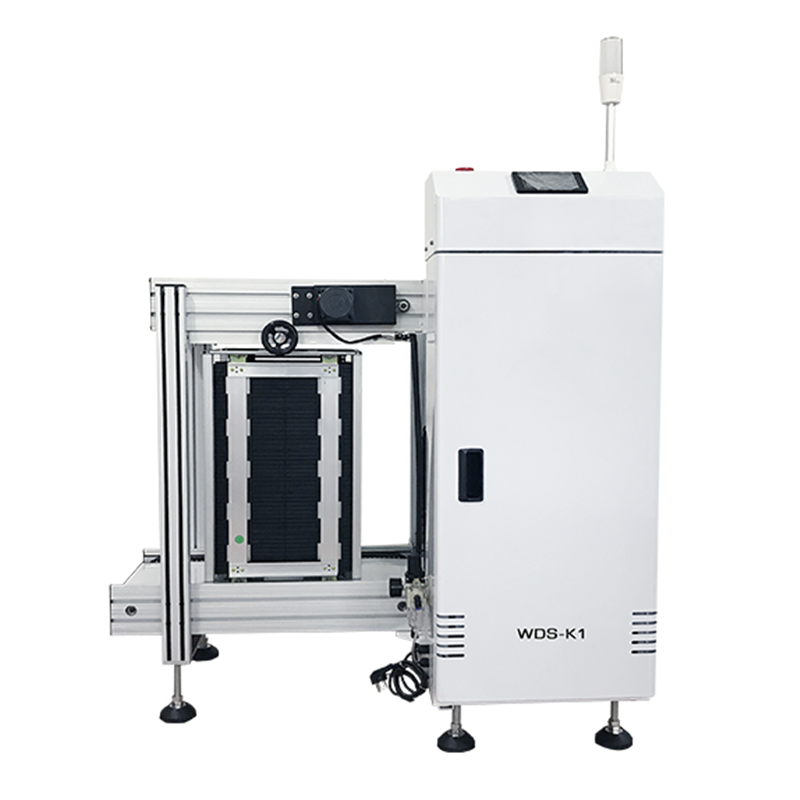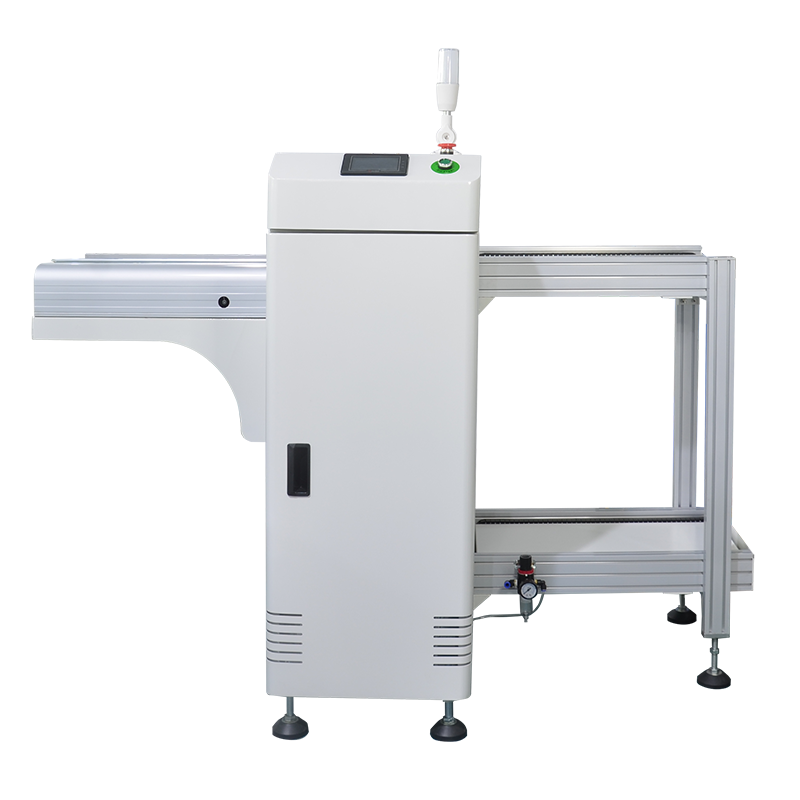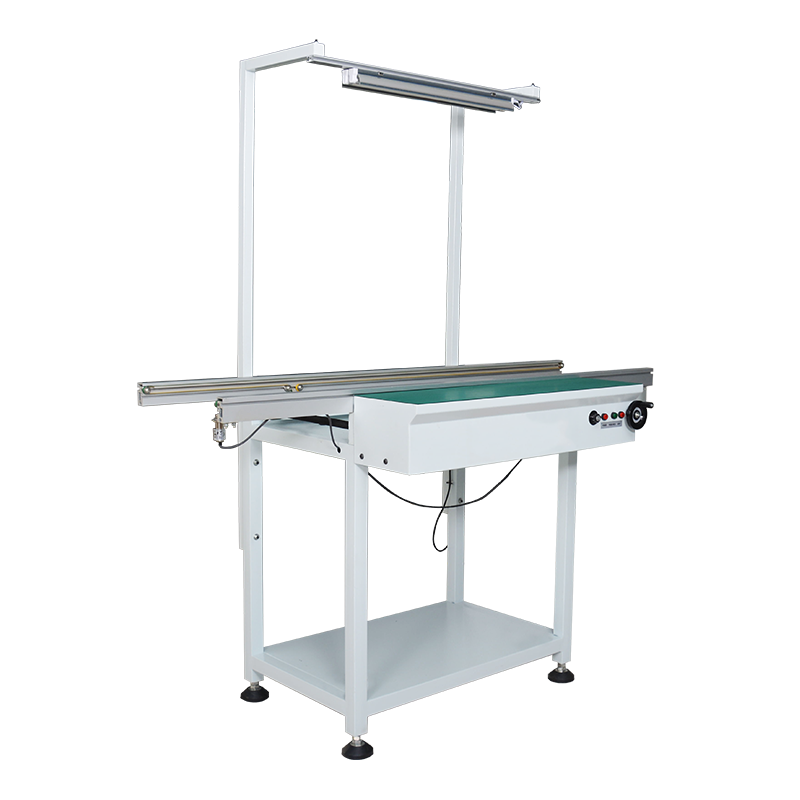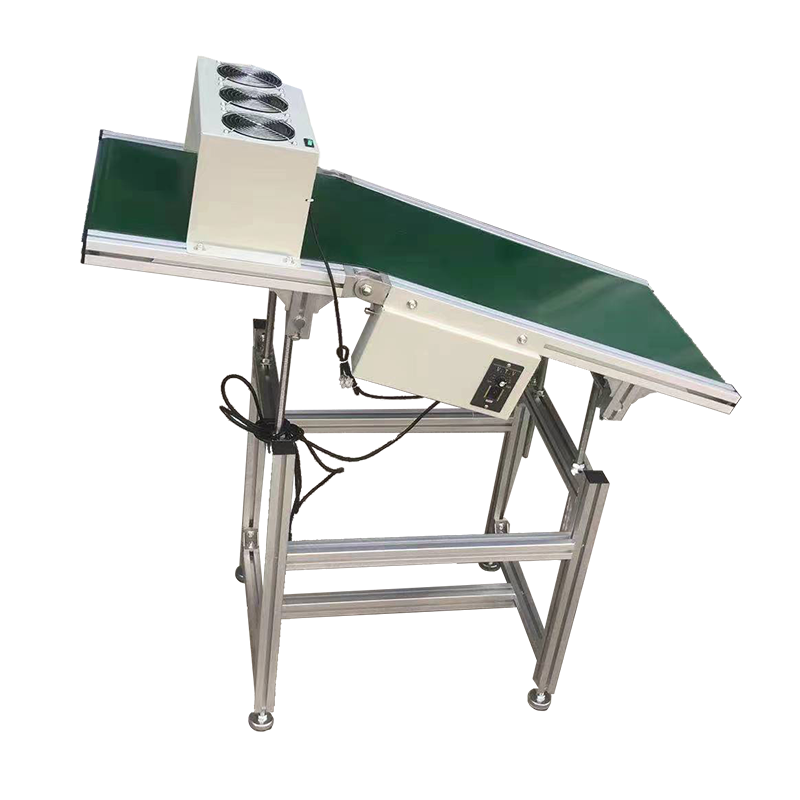E-Mail-Formatfehler
emailCannotEmpty
emailDoesExist
pwdLetterLimtTip
inconsistentPwd
pwdLetterLimtTip
inconsistentPwd

DIP Wave Solder Infeed Conveyor - China Automatic SMT Infeed Conveyor
To accomplish the goal of welding, wave soldering involves bringing the plug-in board's welding surface into direct contact with the hot liquid tin. The primary component is solder bar.
An automatic SMT infeed conveyor and DIP (Dual In-line Package) wave solder infeed conveyor are both types of equipment used in electronics manufacturing to facilitate the transportation and handling of components during the surface mount technology (SMT) and wave soldering processes, respectively. Here's some information about each type of conveyor:
Automatic SMT Infeed Conveyor:
- Function: An automatic SMT infeed conveyor is designed to transport PCBs and other components into the SMT assembly line.
- Component loading: It typically involves loading the components onto the conveyor, which then moves them towards the appropriate SMT machines for placement or further processing.
- Integration: These conveyors are often integrated with other equipment in the SMT assembly line, such as pick-and-place machines, mask printers, or inspection systems.
- Flexibility: Automatic SMT infeed conveyors can be customized to handle various component sizes and accommodate different types of SMT machines and processes.
DIP Wave Solder Infeed Conveyor:
- Function: A DIP wave solder infeed conveyor is specifically used in the wave soldering process, which is employed to solder through-hole components on a PCB.
- Component transfer: This conveyor transfers the PCBs with inserted through-hole components from the previous assembly stage to the wave soldering machine.
- Stabilization: The conveyor ensures proper alignment and stabilization of the PCBs before they enter the wave soldering process.
- Process optimization: Wave solder infeed conveyors help maintain a smooth and continuous flow of PCBs into the wave soldering machine, optimizing the efficiency of the soldering process.
Advantages of using these conveyors:
- Efficiency: By automating the component transfer process, these conveyors help streamline production, reduce manual labor, and improve overall throughput.
- Precision and accuracy: They ensure precise positioning and alignment of components on the conveyor, minimizing the risk of misplacement or damage.
- Workflow optimization: These conveyors contribute to the smooth flow of materials, reducing bottlenecks and optimizing the overall assembly process.
- Customizability: Manufacturers can customize these conveyors to suit their specific production needs, accommodating different PCB sizes, component types, and machine requirements.
Considerations when using these conveyors:
- Equipment compatibility: Ensure that the conveyors are compatible with the SMT machines or wave soldering machines in use, and that they can seamlessly integrate into the assembly line.
- Maintenance and cleaning: Regular maintenance and cleaning of the conveyor systems are necessary to ensure optimal performance and prevent contamination.
- Safety measures: Operators should follow proper safety procedures when working around these conveyors, considering factors like ESD protection and moving parts.
Automatic SMT infeed conveyors and DIP wave solder infeed conveyors play essential roles in electronics manufacturing by automating the transport and handling of components during the SMT and wave soldering processes. They contribute to improved efficiency, accuracy, and productivity in the assembly line.
Product Specification - Automatic SMT Infeed Conveyor
1. The power system adopts a 40W motor, the speed is adjusted by the governor, and the speed is adjustable from 0-4m/min;
2. The frame body is all made of 40x40x1.2mm industrial aluminum profiles;
3. Platen: hydroformed with 1.2 cold plate;
4. Circuit board fixture guide rail: The special plug-in wire aluminum material is used as the guide rail 50X55, and the movement can be adjusted 50~350mm;
5. Transmission: 06C nylon noiseless chain, the width is manually adjusted with a screw rod;
6. Power: electronic speed-regulating motor, power is 40W, chain speed is 0.2~2.2m/min infinitely variable.
Product Features - Automatic SMT Infeed Conveyor
1. It is used to unload PCBs or pallets from the wave soldering machine at 6-7°.
2. Transmission speed, transfer height, and track angle can be adjusted.
3. Cooling fan can be installed so that it can protect the PCBs or the component.
4. Special belt and track, transmission smooth, and work stable and reliable.
What is wave soldering?
Wave soldering is to make the welding surface of the plug-in board directly contact with the high temperature liquid tin to achieve the purpose of welding. The main material is solder bar.
Wave soldering process: Insert the components into the corresponding component holes → pre-coat flux → pre-bake temperature 90-100°C, length 1-1.2m → wave soldering at 220-240°C → remove excess plug-in feet → check.
Wave soldering has a new soldering process with the enhancement of people's awareness of environmental protection. In the past, tin-lead alloys were used, but lead is a heavy metal that is very harmful to the human body. So now there is a lead-free process. It uses tin-silver-copper alloy and special flux, and the soldering temperature requires a higher preheating temperature. Also, a cooling zone workstation should be set up after the PCB board passes the soldering area. This aspect is to prevent thermal shock. On the other hand, if there is ICT, it will affect the detection.
China Automatic SMT Infeed Conveyor - HCT
China is known for its strong presence in the electronics manufacturing industry, and it is home to various manufacturers of automatic SMT infeed conveyor systems. These conveyor systems play a crucial role in transporting components and PCBs (Printed Circuit Boards) to the pick-and-place machines during the assembly process.
The automatic SMT infeed conveyor systems manufactured in China are designed to streamline production and improve efficiency. These systems are equipped with features such as adjustable speed control, width adjustment mechanisms, and precise alignment capabilities, ensuring smooth and accurate transfer of components and PCBs. Some advanced models may also include vision inspection systems to ensure proper placement and orientation of components before they reach the pick-and-place machines.
Chinese manufacturers of automatic SMT infeed conveyor systems often focus on providing reliable and durable equipment. They employ quality materials and rigorous testing procedures to ensure that their conveyor systems can withstand the demanding requirements of high-volume production environments. Additionally, these manufacturers typically adhere to international standards and certifications to guarantee the performance and reliability of their products.
In addition to manufacturing conveyor systems, Chinese suppliers often offer comprehensive technical support, installation assistance, and after-sales services. This ensures that customers receive the necessary guidance and support throughout the implementation and operation of the automatic SMT infeed conveyor systems.
It's worth mentioning that while there are numerous Chinese manufacturers of automatic SMT infeed conveyor systems, it's important for customers to conduct thorough research and evaluation to choose a reputable supplier that meets their specific requirements in terms of quality, customization options, and customer support.
China is a significant hub for the production of automatic SMT infeed conveyor systems, offering a range of reliable and efficient solutions to enhance the productivity and efficiency of electronics manufacturing processes.
